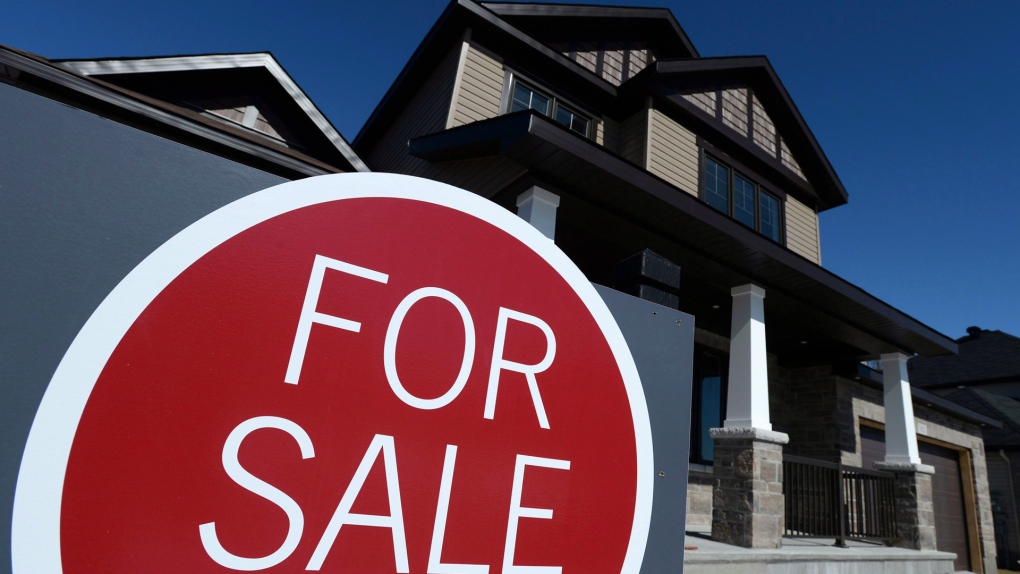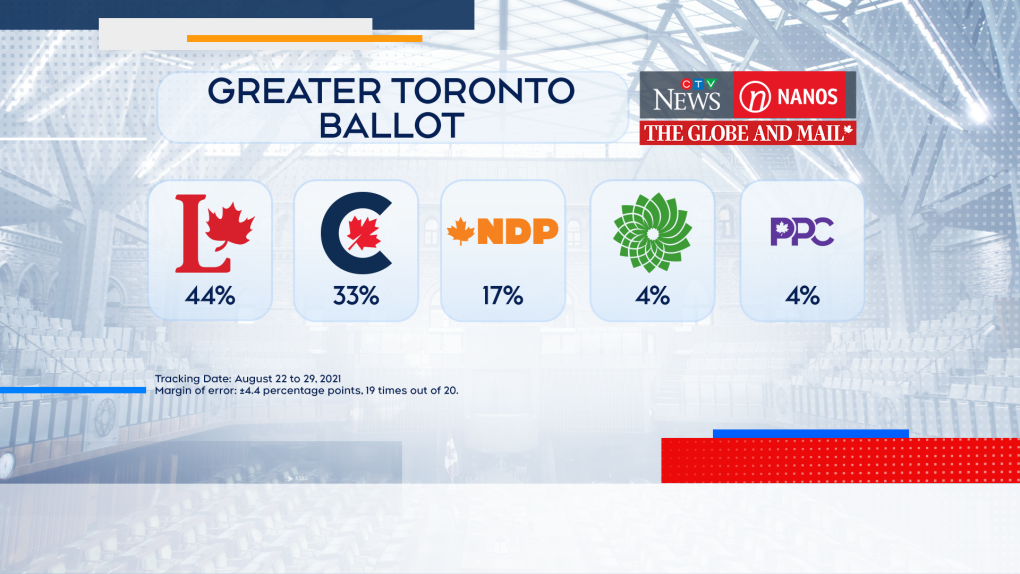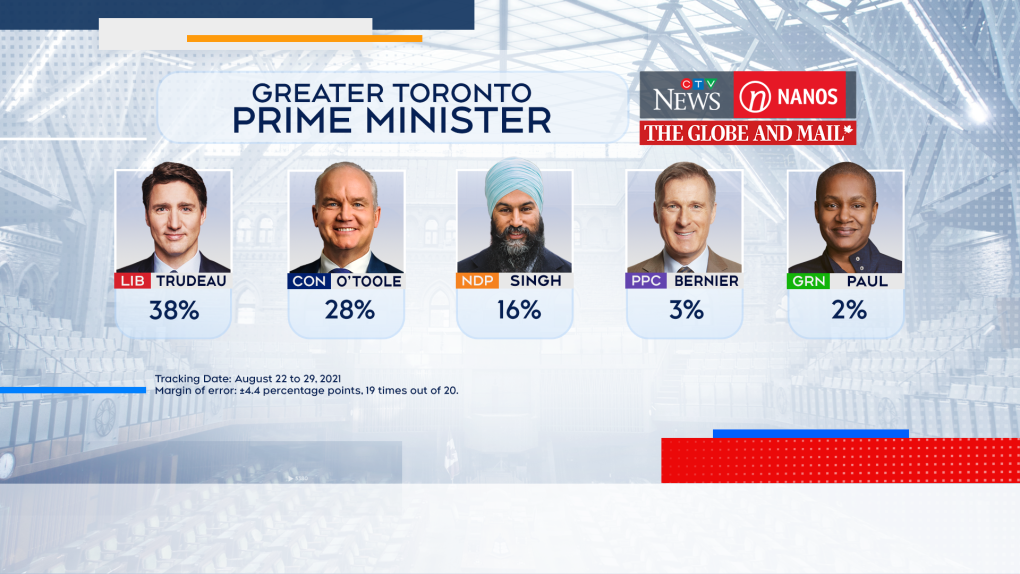Liberals have lead over Tories in GTA as Nanos poll suggests housing has become a top issue for voters
A plurality of Greater Toronto Area residents believe that affordable housing is the single biggest issue facing the region even as a worsening fourth wave of the COVID-19 pandemic puts the health-care system and the broader economy under increasing strain, a new poll has found.
Nanos Research polled 518 adult GTA residents about the top issues facing the region and which factors are more likely to influence their vote in next month’s federal election.
It found that 40.8 per cent of respondents identified affordable housing as the single biggest issue in the GTA followed by transit (17.5 per cent) and COVID-19 related issues (13.8 per cent).
The most recent data released by the Toronto Regional Real Estate Board suggests that home values have risen 12.6 per cent over the last year and that the average price across all property types in all parts of the GTA now exceeds $1 million.
Other issues identified by the respondents included the cost of living (5.5 per cent), the economic recovery from COVID-19 (5.2 per cent), the climate (five per cent) and violent crime (4.9 per cent).
Residents in the City of Toronto were more likely to identify affordable housing as their top issue (47.4 per cent) compared to residents elsewhere in the region (35 per cent).
 A sign advertises a new home for sale in Carleton Place, Ont., on March 17, 2015. THE CANADIAN PRESS/Sean Kilpatrick
A sign advertises a new home for sale in Carleton Place, Ont., on March 17, 2015. THE CANADIAN PRESS/Sean Kilpatrick
Concern about housing was also more pronounced among younger GTA residents, with 45 per cent of those between the ages of 18 to 34 identifying it as their top issue compared to 35 per cent of those between the ages of 35 and 54 and 43 per cent of those who are 55 and up.
Housing affordability has, in fact, been a prominent issue for the leaders in the early days of the campaign, with Liberal Leader Justin Trudeau visiting Hamilton last week to promote his party’s plans to spend $1 billion on a rent-to-own initiative.
The Conservatives, under Erin O’Toole, have also promised to build one million homes in the next three years as part of their own multi-point plan to address housing affordability.
LIBERALS AHEAD IN GTA
The release of the Nanos Research survey comes with less than three weeks to go until the federal election and polls are pointing to an extremely tight race.
Nanos tracking data ending Sunday shows the Liberals projected to win 111 seats compared to 107 for the Conservatives.
However, the Liberals appear to be holding on to their stronghold of the GTA so far.

A separate Nanos Research survey of 502 adults, commissioned by CTV News and CP24, found that 44 per cent of decided voters in Toronto are backing the Liberal party compared to 32 per cent for the Conservatives and 19 per cent for the NDP. The Green Party and the People’s Party of Canada had the support of two per cent and three per cent of decided voters, respectively.
About 13 per cent of respondents in Toronto remain undecided about who they will vote for.
Meanwhile, in the so-called 905 region surrounding the city the race appears to be much tighter.

The poll suggests that the Liberals still have the support of about 41 per cent of decided voters, but the Tories are a closer second with the support of 33 per cent of decided voters. The NDP are a distant third in the 905 with the support of 15 per cent of decided voters.
The 905 region has been hotly contested in the past, but in the 2019 election the Liberals won all five seats in Brampton and all eight seats in Mississauga en route to forming a minority government. The Conservatives won a handful of seats in the suburbs north of Toronto in 2019 but ultimately did not make enough inroads in the region to change their electoral fortunes.
About 10 per cent of prospective voters in the 905 remain undecided with three weeks still to go in the campaign, according to the poll.
VOTERS WILL JUDGE LIBERALS ON TRACK RECORD
In addition to surveying prospective voters on their top issues, Nanos Research also asked them to rate the importance of various other factors in influencing their vote.
Respondents assigned the highest level of importance to a party’s plan for the future with a mean score of 8.1.
They also seemed to suggest that the track record of the Liberal party would be an important factor in determining their vote, assigning it a mean score of 7.6.
The performance of the leaders during the campaign period was not considered as important with respondents assigning it a mean score of 6.4
Likewise, while housing affordability was a top issue overall the poll suggested that it may not be a deciding factor come voting day with respondents only assigning it a mean score of 6.8.
Canadians will head to the polls on Sept. 20.
NANOS METHODOLOGY
Information about party support is comprised of data from the last eight days of the campaign for 502 voters in the GTA between August 22 and August 29, 2021. The margin of error for a survey of 502 respondents is ±4.4 percentage points, 19 times out of 20.
Information about election issues is comprised of data from the last three days of the campaign for 518 voters in the GTA between August 28 and August 30, 2021. The margin of error for a survey of 518 respondents is ±4.3 percentage points, 19 times out of 20.
The respondent samples are stratified geographically and by gender. The data may be weighted by age according to data from the 2016 Canadian Census administered by Statistics Canada. Percentages reported may not add up to 100 due to rounding.
CTVNews.ca Top Stories

Fall sitting bookended by Liberal byelection losses ends with Trudeau government in tumult
The House of Commons adjourned on Tuesday, bringing an end to an unstable fall sitting that has been bookended by Liberal byelection losses. The conclusion of the fall sitting comes as Prime Minister Justin Trudeau's minority government is in turmoil.
2 B.C. police officers charged with sexual assault
Two officers with a Vancouver Island police department have been charged with sexual assault, authorities announced Tuesday.
Canadian government announces new border security plan amid Donald Trump tariff threats
The federal government has laid out a five-pillared approach to boosting border security, though it doesn't include specifics about where and how the $1.3-billion funding package earmarked in the fall economic statement will be allocated.
B.C. teacher disciplined for refusing to let student use bathroom
A teacher who refused to let a student use the bathroom in a B.C. school has been disciplined by the province's professional regulator.
Most Canadians have heard about Freeland's resignation from Trudeau cabinet, new poll finds
The majority of Canadians heard about Chrystia Freeland's surprise resignation from Prime Minister Justin Trudeau's cabinet, according to a new poll from Abacus Data released Tuesday.
Police chief says motive for Wisconsin school shooting was a 'combination of factors'
Investigators on Tuesday are focused on trying to determine a motive in a Wisconsin school shooting that left a teacher and a student dead and two other children in critical condition.
After investigating Jan. 6, House GOP sides with Trump and goes after Liz Cheney
Wrapping up their own investigation on the Jan. 6 2021 Capitol attack, House Republicans have concluded it's former GOP Rep. Liz Cheney who should be prosecuted for probing what happened when then-President Donald Trump sent his mob of supporters as Congress was certifying the 2020 election.
Wine may be good for the heart, new study says, but experts aren’t convinced
Drinking a small amount of wine each day may protect the heart, according to a new study of Spanish people following the plant-based Mediterranean diet, which typically includes drinking a small glass of wine with dinner.
The Canada Post strike is over, but it will take time to get back to normal, says spokesperson
Canada Post workers are back on the job after a gruelling four-week strike that halted deliveries across the country, but it could take time before operations are back to normal.

































